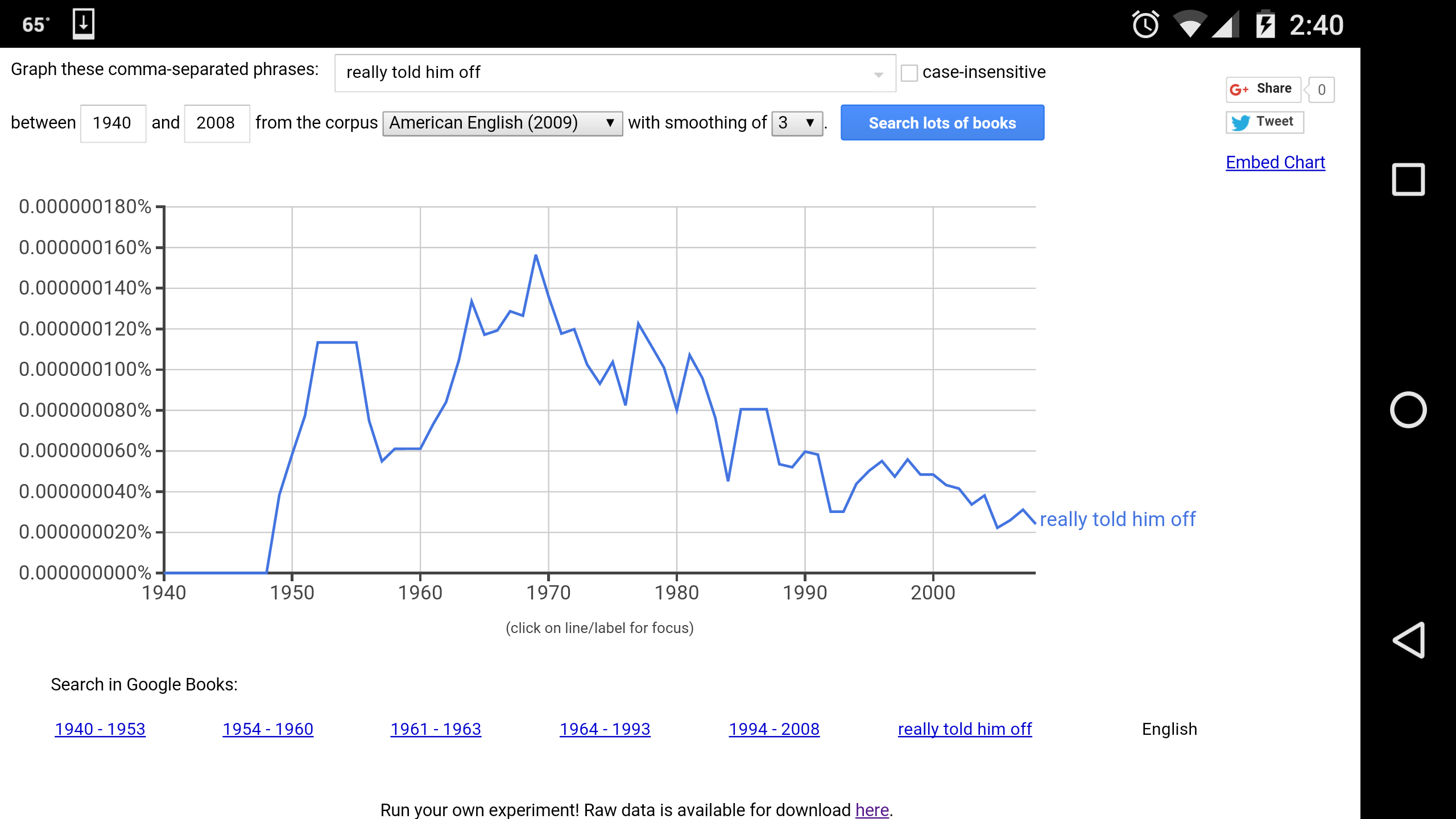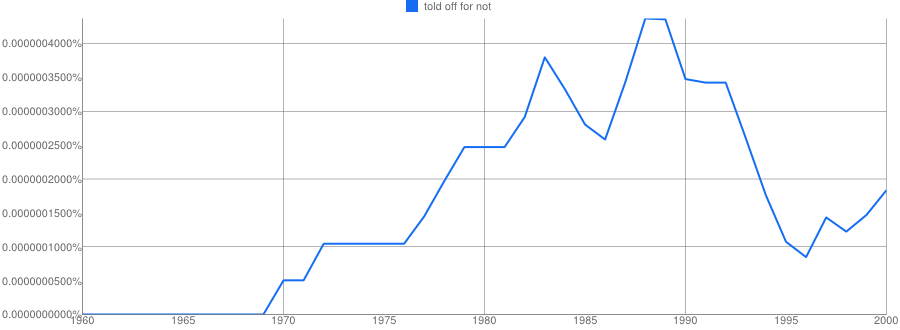This question was asked and answered quite a while ago, but I think there's another interesting facet to the story so I'm asking this answer.
This is an old-fashioned AmE idiom, but with a slightly different meaning than the BrE idiom which would make it inappropriate in the given situation. Specifically, it is used between adults (often from someone in a slightly lesser position of power) to express outrage or anger over the other's behavior, especially behavior that had previously gone uncensured; similar to "give a piece of (my) mind". I would, for example, expect to hear it used about a blow-hard co-worker, but not about one's child.
This usage goes back to the middle of the 20th century, at least. An Ngram of "really told him off" in the American corpus finds usage back to the 1940s, which peaked a couple of decades later and has been gradually fading ever since.

Interestingly, many of the earliest available examples are from transcripts or reporting, suggesting the idiom may have been in use in spoken language for at least a little while before authors caught up. For example:
Q: You really told him off, didn't you, Bob?
A: Well--
Q: You were mad?
A: I was sore.
Q: And you really let him have it?
A: Yes, sir.
(From the Decisions and Orders of the National Labor Relations Board, combined snippets)
Switching to the British corpus and searching "told him off" (the "really" element is common in AmE but not BrE) does turn up a few early examples, notably a 1957 ethnography that uses the phrase in the American sense. (A tantalizingly early work appears to actually be a more recent translation of the 1910 book.) However, it appears that the American usage may have predated the British.
Examples of the "truth-to-power" sense of the phrase include a 1949 anecdote about a man who meant to tell off a city official, but accidentally got the man's "innocent wife"; a 1962 review of the play The Desk Set (later a Hepburn-Tracy vehicle) which describes three underlings deciding to tell off their boss; a 1975 description of a wife telling her therapist about "standing up to" her husband and telling him off; a 1988 story of a man telling off a doctor over not being allowed in his wife's delivery room; and so on.
None of the examples I looked at were of adults scolding children, or described children speaking (though some of them described younger people doing the telling off).
It is unclear whether there is a direct relationship, and, if there is, how an adult phrase for scolding of peers or bigwigs turned into a children's term for a parental scolding. It seems plausible that an idiom about empowerment would appeal to children, but that's just a guess, and doesn't explain how the power dynamic of the phrase got flipped.


